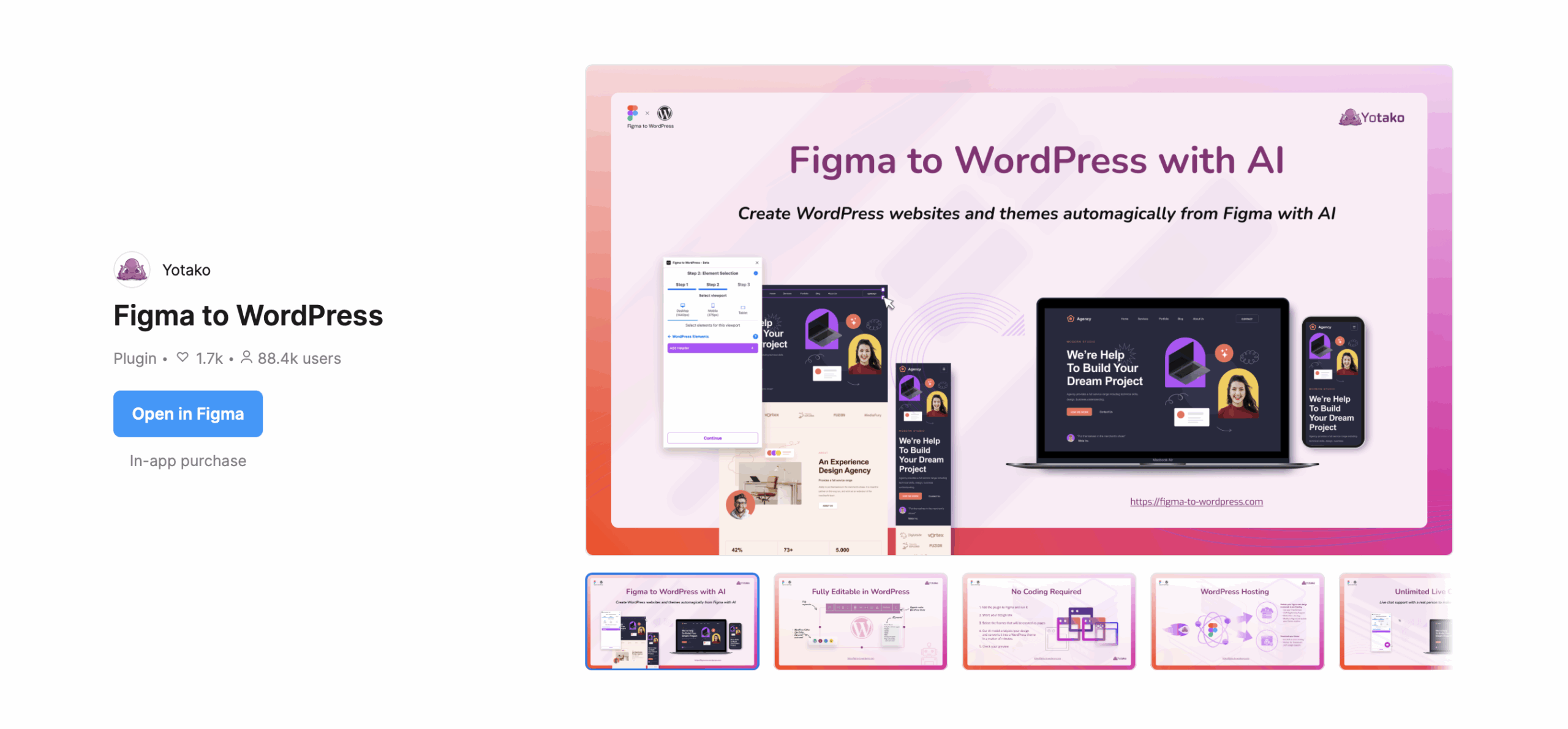When it comes to bringing designs in Figma to WordPress, website developers often face the decision of whether to code manually or use plugin converters. Figma, a powerful design tool, offers a seamless platform for creating visually stunning website layouts, while WordPress serves as one of the most popular content management systems (CMS) to transform these designs into fully functional websites. Both methods of conversion—manual coding and using plugin converters—have their own merits and drawbacks. In this article, we will explore the key differences, advantages, and considerations for each approach to help you choose the best option for your next project.
Understanding Figma to WordPress
Figma is a cloud-based design tool that allows designers to create user interfaces (UI) and user experiences (UX) collaboratively in real-time. With its extensive design libraries, prototyping features, and vector editing tools, Figma has become a go-to tool for web designers worldwide. It enables teams to craft detailed mockups and interactive prototypes, ensuring every design aspect is polished before development begins.
WordPress, on the other hand, is an open-source content management system (CMS) used by millions of websites. It provides an intuitive platform for content creators and web developers, offering thousands of themes and plugins to customize sites easily. WordPress allows for flexibility in design and functionality through both manual coding and various plugin integrations, making it an excellent choice for building websites that need to be visually appealing and user-friendly.
The synergy between Figma and WordPress lies in the need to turn static design prototypes into dynamic websites. While Figma handles the design aspect, WordPress serves as the platform where the designs are transformed into fully interactive web pages.
Manual Figma to WordPress Advantages and Disadvantages
Manual coding involves translating Figma designs into HTML, CSS, JavaScript, and PHP to build custom WordPress themes. This process provides complete control over every aspect of the website, including functionality, appearance, and performance optimization.
Convert Your Figma designs to WordPress Now!
Our experienced team will support you through every stage of the Figma to WordPress coding.
Advantages:
- Complete control: Developers have full control over the code, allowing them to implement unique features or complex designs that are hard to achieve with plugins.
- Customization: Manual coding offers limitless possibilities for customization, ensuring that the final product aligns perfectly with the Figma design.
- Performance optimization: Since developers can write clean, minimal code, they can optimize the website’s performance, loading times, and SEO.
Disadvantages:
- Time-consuming: Manual coding can be a lengthy process, especially for complex designs, as it requires attention to every detail.
- Requires coding expertise: It’s essential to have knowledge of HTML, CSS, JavaScript, and PHP, which may not be feasible for beginners.
- Risk of human error: Mistakes during coding can lead to bugs or layout issues that require additional time to resolve.
Figma to WordPress Plugin Converters Overview

Plugin converters, such as Figma to WordPress plugins, automate the process of converting Figma designs into WordPress themes or pages. These tools essentially take the design file and generate code automatically, minimizing the need for manual intervention.
Popular plugin options include:
- Figma to WordPress Converter: A plugin designed to convert Figma designs into WordPress-friendly themes quickly.
- WP Figma: A WordPress plugin that simplifies the import of Figma designs directly into WordPress.
Benefits:
- Speed: Plugin converters are significantly faster than manual coding, making them ideal for quick turnarounds.
- Ease of use: No coding skills are required. Simply upload the Figma file, and the plugin will do the work.
- Cost-effective: For basic designs, plugin converters can save both time and money, as developers don’t need to manually code every element.
Drawbacks:
- Limited customization: While plugins can handle simple designs, they may not offer the flexibility needed for more complex or unique features.
- Dependency on plugins: Relying on third-party plugins introduces the risk of compatibility issues or the plugin becoming outdated.
Factors to Consider When Choosing a Method
When deciding between manual coding and plugin converters, several factors should be considered:
- Project complexity: If the Figma design involves custom animations, dynamic features, or intricate layouts, manual coding may be the best option to ensure precise implementation.
- Budget and timeline: For smaller projects with limited budgets or tight deadlines, plugin converters offer a faster and more affordable solution.
- Coding proficiency: If your team lacks coding skills, plugin converters may be more practical, whereas experienced developers might prefer the control that manual coding offers.
- Design requirements: Highly customized or unique designs might need manual coding, while standard templates or simpler layouts can often be managed through plugins.
Example Scenarios:
- A small business website with a basic design: Plugin converter.
- A custom portfolio website with complex animations and interactions: Manual coding.
Conclusion
In conclusion, both manual coding and plugin converters offer distinct benefits when converting Figma to WordPress websites. If you require complete control, customization, and performance optimization, manual coding is the way to go. On the other hand, if you’re looking for a quicker, more affordable solution for simpler designs, plugin converters can help you achieve your goals efficiently. Before making your decision, consider factors like the project’s complexity, timeline, and your team’s skill set. At XHTMLTEAM.com, we specialize in converting Figma designs into fully functional WordPress websites. Contact us today to discuss how we can bring your Figma designs to life!
Ready to convert your Figma designs into a stunning WordPress website? Visit XHTMLTEAM.com today for expert conversion services and personalised assistance!

